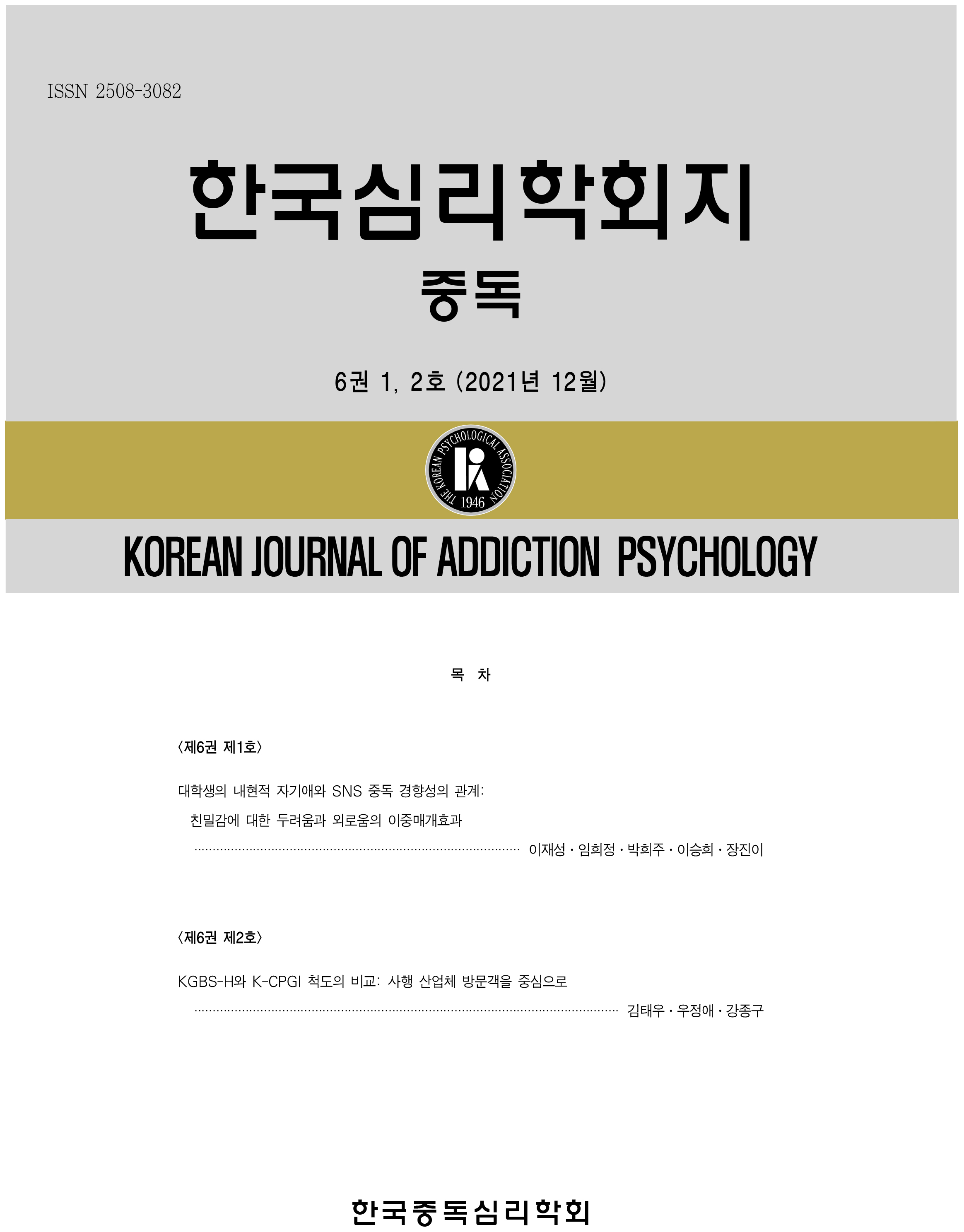7권 1호
초록
본 연구는 청소년의 스마트폰 과의존 현상에 대한 탐구이며 스마트폰 이용 주체인 청소년들 의 경험을 현상학적 관점으로 연구하고자 하였다. 이를 위해 2020년 경상남도 G시에 소재하 고 있는 중학교에서 실시한 ‘청소년 인터넷․스마트폰 이용습관 진단조사’결과 스마트폰 과 의존 고위험 사용군 진단을 받은 학생 중 자신의 경험을 잘 표현하여 문제점을 드러낼 수 있는 5명을 선정하여 심층면담을 실시하였다. 수집된 자료는 현상학적 연구방법론에 근거하 여 분석하고 기술함으로서 26개의 구성 의미를 도출하였으며, 이를 공통적인 의미로 분류되 는 9개의 주제와 4개의 주제군으로 요약하였다. 본 연구를 통해 도출된 청소년들의 스마트폰 과의존 경험은 다음과 같다. 첫째, 스마트폰이 아동기 때부터 지속적으로 장시간 사용해왔다. 둘째, 스마트폰으로 관심이나 흥미 있는 분야의 정보를 검색하여 탐색하거나 직접 경험할 수 없는 주변의 세상을 탐색한다. 셋째, 각종 메신저 애플리케이션을 활용한 친구들과의 교류 및 정보공유 등 대인관계를 맺고 관리하며 외로움을 위로 받는다. 넷째, 청소년들이 본인의 스마트폰 활용 시간에 문제가 있음을 인지하고 있음에도 불구하고 스마트폰이 주는 재미, 함 께 활용하는 친구의 영향, 코로나 등의 사회적 변화로 인하여 스마트폰에 계속 의존하게 되 며 스마트폰 과의존 문제를 조절하고자하는 의지가 약하다. 마지막으로 본 연구의 제한점, 후속 연구에 대한 제언이 논의되었다.
Abstract
This study is an inquiry into the phenomenon of adolescents' dependence on smartphones, and attempted to study the experiences of adolescents, who are the smartphone users, from a phenomenological perspective. Five students who were diagnosed with high-risk smartphone over-dependence on smartphones were selected to express their experiences and reveal their problems according to the "2020 Youth Internet and Smartphone Usage Diagnosis Survey" conducted at a middle school in G city in Korea. The collected data were analyzed and described based on the phenomenological research methodology to derive 26 meaning units, which were summarized into 9 subcategories and 4 top categories. The experiences of adolescents' dependence on smartphones derived through this study are as follows. First, participants have continuously used smartphones for a long time since childhood. Second, participants search for information in fields of interest or explore the surrounding world that they cannot experience in person. Third, participants establish and manage interpersonal relationships such as exchange and information sharing with friends using various messenger applications, and receive comfort from loneliness. Fourth, despite recognizing that there is a problem with their smartphone usage time, participants continue to rely on smartphones due to social changes such as the fun of smartphones, the influence of friends who use them together, and COVID-19, and their willingness to control smartphone over-dependence is weak. Finally, the limitations of this study and suggestions for follow-up studies were discussed.

